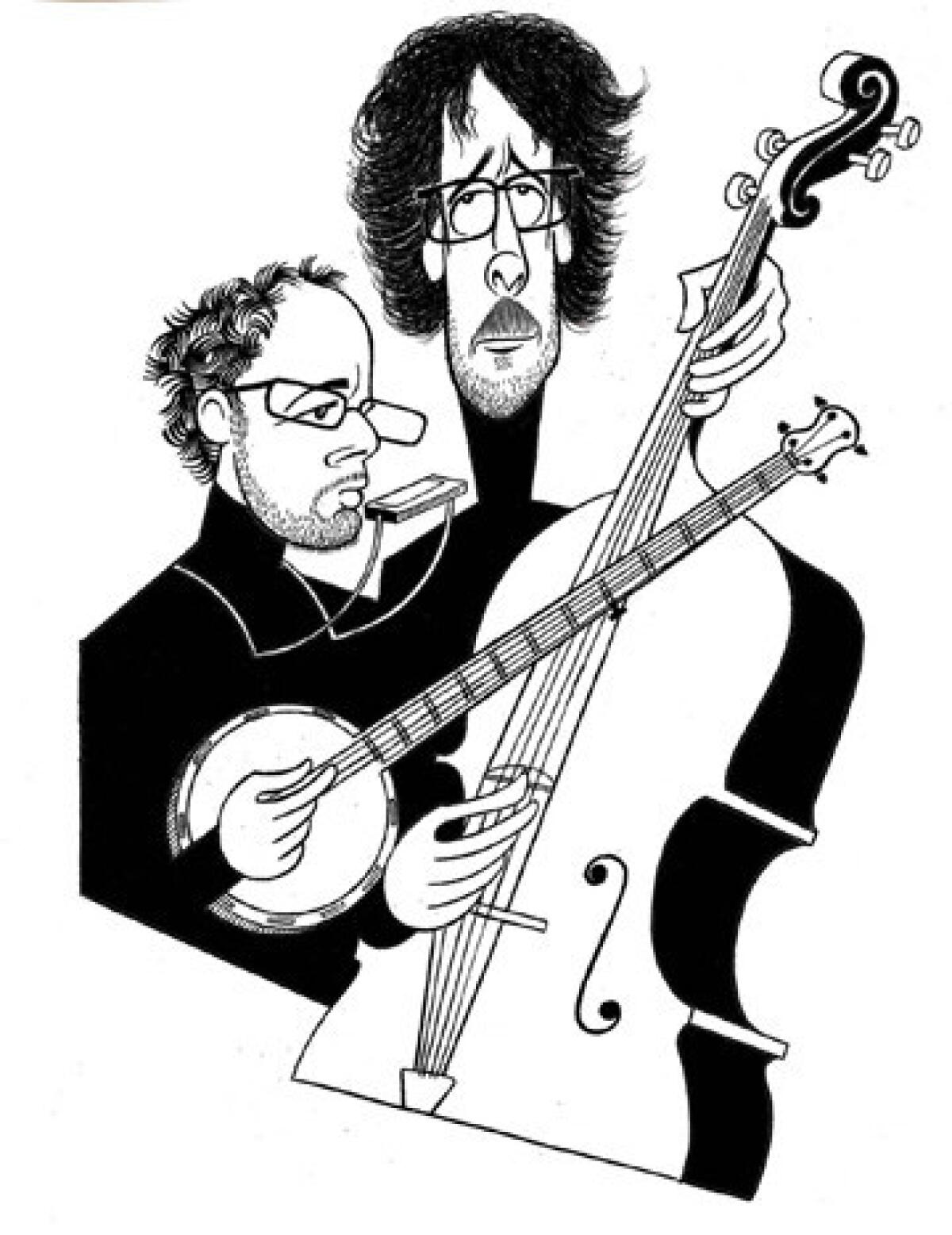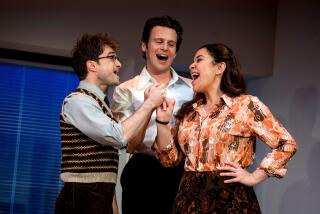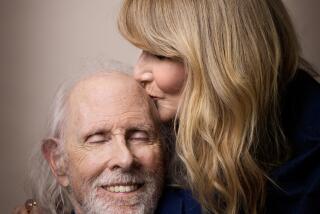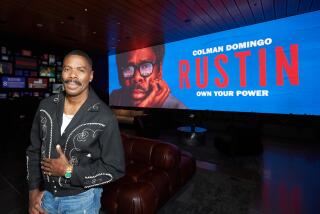Joel and Ethan Coen in a duet about ‘Inside Llewyn Davis’

“Inside Llewyn Davis,” the Coen brothers’ latest movie, shines a light on the early-1960s Greenwich Village folk scene, focusing on a struggling folk singer (Oscar Isaac, a revelation) who can’t get a handle on his career or personal life. T Bone Burnett supervised the music, as he did with the Coens’ “O Brother, Where Art Thou?” and has staged a handful of concerts featuring folk songs from the film’s warm soundtrack. We spoke to Joel and Ethan Coen shortly after one such show in Santa Monica about their inspirations for the movie and what it might say to artists today.
Did you know Barbra Streisand was going to be in the audience?
Ethan: [laughs] No. I don’t think we’ve ever met her.
Joel: I met her a long time ago. I can’t remember the context.
She would have been in New York around the same time as the events in the movie.
Joel: She would have absolutely been around. But it’s unlikely she would have been around the Gaslight Cafe. I’m not even talking about a matter of taste. It was a small scene that attracted a niche audience.
TIMELINE: The Academy Awards through the years
The movie looks like the cover of “The Freewheelin’ Bob Dylan” come to life.
Ethan: That was consciously, definitely the touchstone. That’s what we were talking about with [cinematographer] Bruno [Delbonnel], that oppressive, gray, wintry New York Village slush.
You say “oppressive,” but for a lot of people, that picture of Dylan with girlfriend Suze Rotolo is the essence of romance.
Ethan: There is something romantic about it, but it’s also hard New York. They’re not walking down the beach in Maui. They look cold.
They’re not exactly dressed for winter.
Ethan: Which we did with Oscar throughout the film.
T Bone feels passionately that this movie speaks both to the role and value of the artist in society.
Ethan: Well, it might. It might not. Hopefully it does. If it does, it’s because it’s about a well-imagined character, so it’s not our place to say. When you’re writing a story, it’s about a character and a particular artist.
Joel: Not an abstract notion of the “artist.” In terms of how we think, it’s always about the individual.
Ethan: And that’s the truth. It’s always about what’s important to the characters, not what’s important to us.
PHOTOS: Best and worst moments from 2013 Oscars
Joel: [After a long pause] OK. Here’s the respect in which ... this is also honest ... the respect which that idea can be addressed in a slightly different way. In thinking about this story, we were consciously thinking, “OK. We all know people who are very good at what they do but aren’t successful. Why is that?” It’s interesting to imagine a character in that context. But it’s not limited to artists.
You must have pondered that question at times yourselves. Why us? How did we become so successful?
Ethan: Yes. It’s the other side of the coin for us. It certainly strikes us frequently. “Yeah, wow, how did we step in … ?” [Laughs]
Joel: Yeah. We look back on our history and go, “Luck certainly had a lot to do with it.” That’s always a factor. Sometimes big, sometimes small.
Ethan: Again, to be honest — which we try to avoid in interviews, but we seem to be making an exception in this one— in our case, OK, sometimes we were canny, more than the movie’s character, in figuring stuff out. And maybe that’s part of the explanation. It’s certainly not all of it. Our success is not wholly our creation.
Ambition plays a part. It’s why Dylan became Dylan.
Ethan: Absolutely. But Oscar’s character doesn’t lack that. He wants to get somewhere.
VIDEO: Highlights from the Envelope Screening Series
Joel: But there are different kinds of ambition too. Some people are very ambitious but it’s not an engine. It’s there latently, wishfully. And then there are people who have ambition in their metabolism, but it doesn’t matter, because there are other things that aren’t working. And then there are people who are utterly convinced of their own destiny in terms of success.
Ethan: They become sucessful and say, “I knew this was going to happen.”
Did you know?
Ethan: Well, you know, when you’re younger, you tend to believe that more just generally. People aren’t given to self-doubt as much when they’re young. Or maybe they just don’t give a ... as much.
Joel: Self-delusion plays a part. [Laughs] But we weren’t even going that far down the road in our own heads. When I applied to college, I applied to one college. And I wasn’t even thinking about what I would do if I didn’t get in.
There’s no Plan B. It’s a bit like Llewyn. He has this clear idea of what he wants, and he’s not going to change his mind. That would be selling out.
Joel: Authenticity was a big deal to these singers. You didn’t compromise or you’re the Kingston Trio.
Ethan: Or the Brothers Four. There’s a YouTube clip of them singing a song we put in the movie, “500 Miles,” and you see all these kids just soulfully singing along with zero level of irony at work anywhere.
There were people singing along at the “Llewyn Davis” show.
Ethan: They sang along to “Midnight Special.” I’m saying it wouldn’t happen with “500 Miles.” It will happen at a Bruce Springsteen concert.
Have you been to a Bruce Springsteen concert?
Ethan: Sure.
Did you sing along?
Ethan: No.
Joel: If it’s “Dancing in the Dark,” then, yeah, sure. [Laughs]
More to Read
Only good movies
Get the Indie Focus newsletter, Mark Olsen's weekly guide to the world of cinema.
You may occasionally receive promotional content from the Los Angeles Times.







